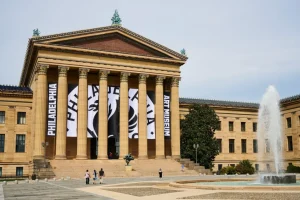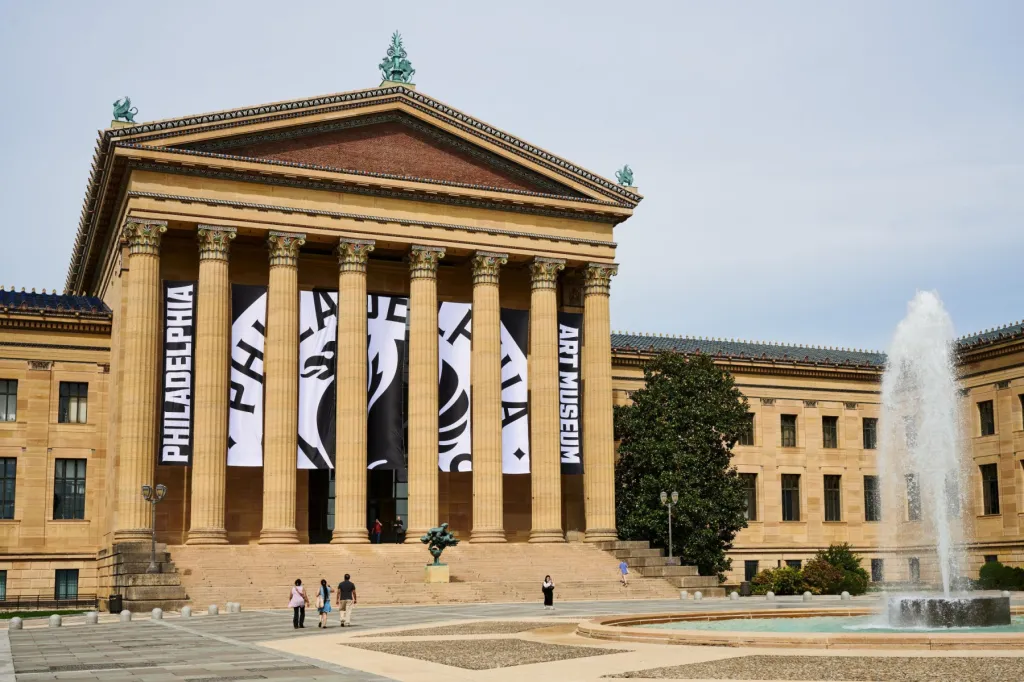Earlier this month, Sasha Suda, the former director and CEO of the Philadelphia Museum of Art, filed a civil suit against the institution, alleging wrongful termination, unfair treatment, and abuse. On Thursday, the museum filed its response.
In a new motion to compel arbitration, the museum denied Suda’s claims and asserted that the 12-member Executive Committee voted unanimously to terminate her for cause following “an extensive investigation.” That investigation, the motion states, concluded that Suda had “misappropriated funds from the Museum and lied to cover up her theft.”
The filing further claims that Suda “repeatedly asked the Compensation Committee” for raises above her agreed-upon $720,000 annual salary and, after being denied, “awarded herself the salary increase the Committee had just declined,” allegedly doing so on three separate occasions without informing the board. In September, according to the motion, the committee discovered these increases, prompting the formation of a special board committee to investigate, assisted by outside counsel.
“After reviewing the evidence and evaluating their fiduciary duties to the Museum, the Executive Committee determined that the evidence overwhelmingly established that Suda violated her Agreement by misappropriating Museum funds and engaging in repeated acts of dishonesty,” the motion states.
The museum’s motion also contends that Suda’s employment contract requires all claims to be resolved through “private, confidential arbitration.” An employment agreement attached to the filing includes that clause. Suda’s complaint argues that she is entitled to litigate in court under the “injunctive relief” exception in the agreement. The museum denies the applicability of that exception.
In an emailed statement, the museum confirmed it had filed the petition but declined further comment.
Luke Nikas, a lawyer for Suda, told ARTnews via email that the museum’s allegations are false. “These are the same recycled allegations from the sham investigation that the Museum manufactured as a pretext for Suda’s wrongful termination,” he wrote.
“The motion, as well as its false narrative, fits the Philadelphia Museum’s longstanding pattern of trying to cover up its misconduct and mistreatment of staff,” Nikas continued. “We expected the Museum would prefer to hide the sordid details about its unlawful treatment of Sasha Suda in a confidential arbitration. If the Museum had nothing to hide, it would not be afraid to litigate in state court where we filed the case.”
Suda joined the museum in 2022 after serving as director and CEO of the National Gallery of Canada. Her tenure there was described as “marked by controversy” by Canadian newspaper The Globe and Mail. Shortly after taking the post in 2019, Suda led what the newspaper called a “wholesale reimagining” of the institution aimed at correcting “historical wrongs.” The Globe and Mail estimated that 30 to 40 staff members, including several senior leaders, left the museum under her leadership.
At the Philadelphia Museum of Art, Suda also faced challenges. The museum had recently weathered a scandal involving then director Timothy Rub, who was accused of mishandling sexual harassment complaints. When Suda arrived, the museum was in the midst of a long and acrimonious negotiation with unionized workers, who began striking shortly after her tenure began.

